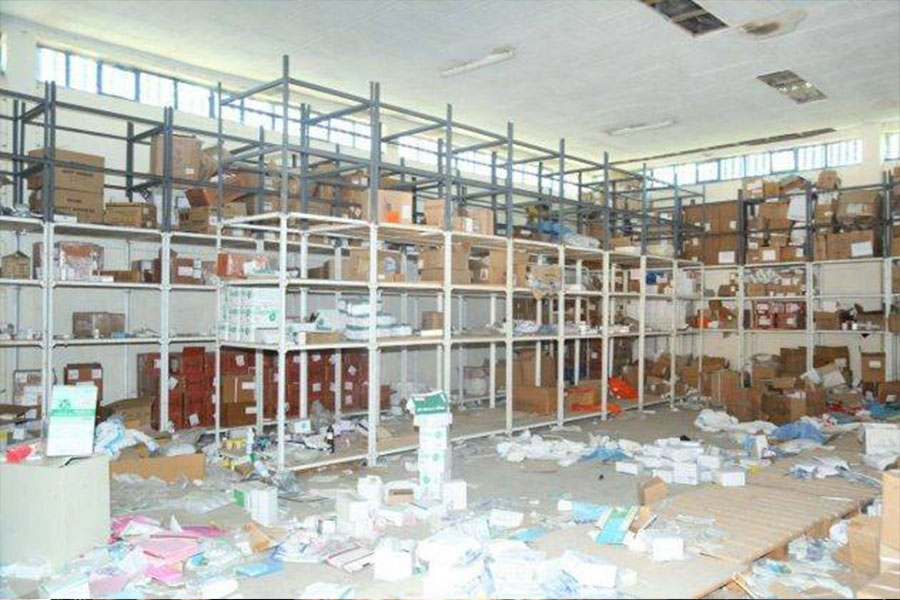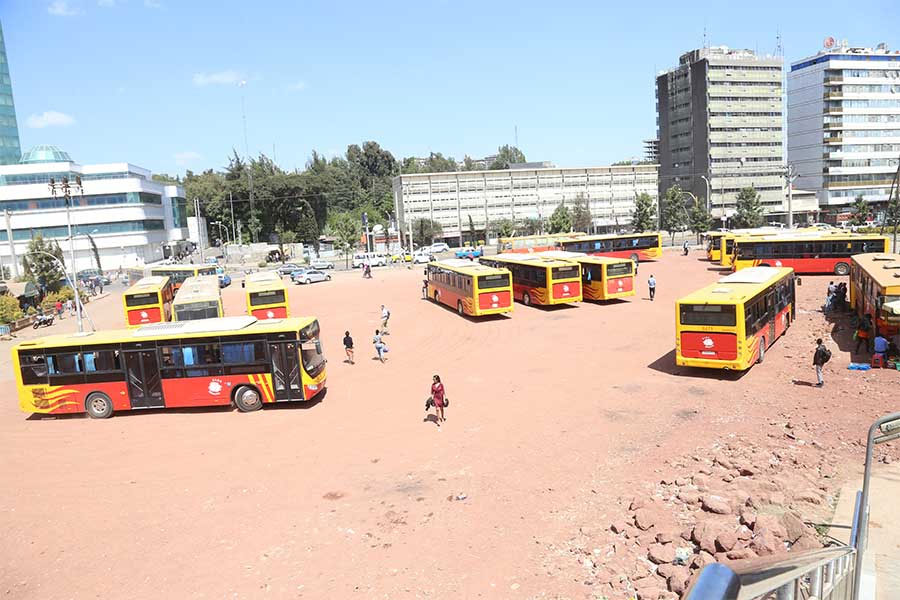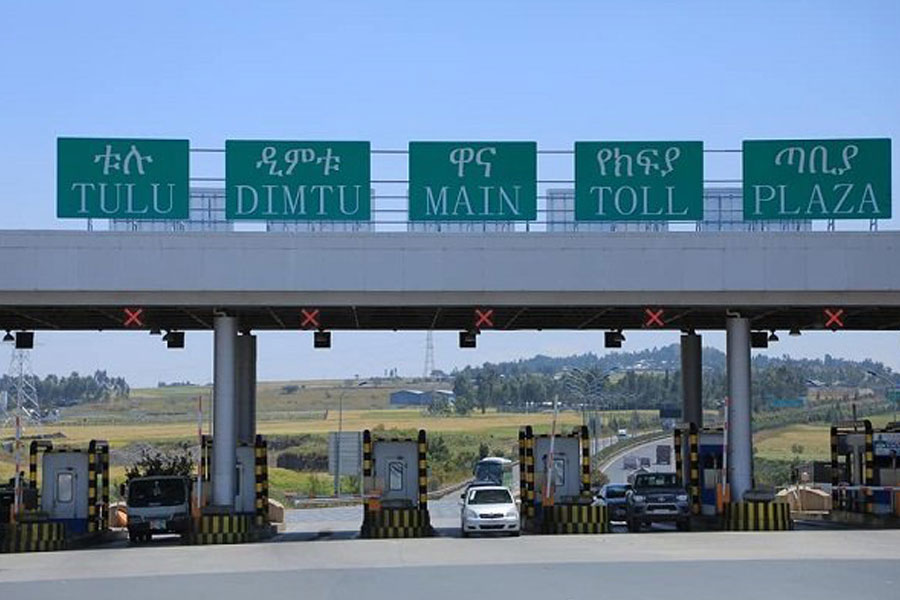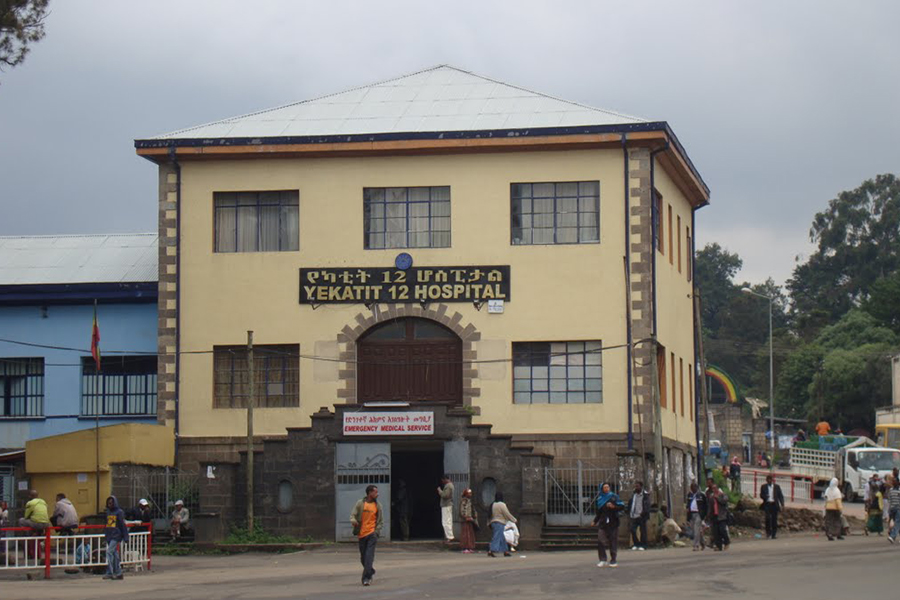
Fortune News | Dec 19,2021
Jan 2 , 2021
By HAWI DADHI
A team of experts at the Ministry of Revenues crafted a new system that allows regional offices to closely monitor their share of revenues they receive from the federal government along with its source. Dubbed the "data warehouse," the system enables regional states to check their quota.
A business and IT team organised for the assignment developed the system and implemented the new formula, generating direct and indirect revenue sharing transaction reports. The team has been operational since June 2019. The business team comprises six individuals drawn from the House of Federation as well as the legal, revenue accounts and tax departments of the Ministry. The IT team is led by the Ministry's IT directorate and has two experts and consultants.
The system follows the newly implemented revenues distribution formula, which was enacted as of the beginning of this year after the House of Federation approved the formula, which replaced the one that had been in use for the prior 23 years. With the newly enacted formula, the distribution of revenues from employment taxes, which used to be divided equally between the central and regional governments, is now fully allocated to the regional governments.
Before the new system, the Ministry and the regional states have been using Standard Integrated Government Tax Administration System (SIGTAS) for revenues sharing. SIGTAS, which the Ministry developed and used since 1994, had drawbacks in allowing regional administrations to follow up on their shared revenues.
SIGTAS lacks transparency, according to Bahru Awol, director of Revenue Accounts Administration at the Ministry.
The new system is currently handling revenues from indirect taxes only. Regional revenue offices have been provided with training on how the new system operates. As an additional feature, the system enables regional administrations to find out how much revenues they will receive in advance.
Two weeks ago, the Ministry made a five-month report of the new system. In its report, the Ministry detailed additional challenges that have been incurred. Difficulty in collecting taxes from companies operating in regional states and not having the basis to register cross-country contractors as branches are two of the main issues that were pointed out. The Ministry has opened new taxing centres and identified 2,249 companies with branches in regional administrations to address this gap.
The federal and regional state governments are allowed to concurrently levy and collect taxes such as profits and sales taxes from enterprises owned jointly by federal and state governments and personal income taxes of employees working in these same enterprises. The list also includes profits taxes; royalties; rent from large-scale mining, petroleum, and gas enterprises; profit taxes on corporations and taxes on dividends paid to shareholders; and profit taxes from royalties of patent rights.
The former formula dedicated 60pc of revenues generated from royalties of large-scale mining, petroleum, and gas enterprises to the federal government. But with the new formula, only 25pc goes to the federal government. In contrast, the regional government takes 50pc and allocates 10pc of that amount to the local government in the specific area of origin. The remaining 25pc is distributed among the rest of the regional state governments.
Andualem Tilaye Mengistu (PhD), a researcher at the Ethiopian Development Research Institute with expertise in monetary policy and tax systems in developing countries, regards the allocation of 10pc to the local administration as positive progress.
"In the past, the inhabitants of the area didn't see the need to protect facilities, as they didn't feel a sense of ownership," he said, adding that it is only fair that these areas get a piece of the pie.
However, revenues generated from royalties of large-scale mining, petroleum and gas enterprises are still bearing challenges, according to Mohammed Hasso, head of the tax system & regional support directorate at the Ministry.
Unlike other revenues such as regular taxes collected from mining and petroleum projects, royalties are being collected by the Ministry of Mines & Petroleum due to its mandate. Any mining license holder is obligated to pay a royalty based on the sales price of the commercial transactions of the minerals produced. The amount ranges from two to eight percent, depending on the type of mineral.
Hailu Efa, the general secretary of the standing committee for subsidy budget and shared revenues affairs at the House of Federation, does not consider royalties collected by the Mines Ministry as a challenge. Rather, he says that the committee is more concerned about the administrative gap observed in collection and distribution of royalty payments to regional governments.
The Ministry lacks adequate expertise in mining and petroleum project operations, which could potentially lead to maladministration, while levying royalties, according to Andualem, the expert.
He also believes that the Ministry lacks operational expertise in tax and royalty collection since it was not structured for involvement in tax administration. He suggests the government invest in building the capacities of these institutions to alleviate expertise mismatch.
The Ministry's quarterly report shows a 647pc increase in revenues distributed to regional governments compared to the same period last year.
"The readjustment of shared revenues distribution does not address the fundamental problems of revenues allocation," Andualem said.
High revenue-generating tax sources should be allocated to regional administrations instead of the federal government to avoid a power imbalance, according to the expert.
PUBLISHED ON
Jan 02,2021 [ VOL
21 , NO
1079]

Fortune News | Dec 19,2021

View From Arada | Feb 05,2022


Fortune News | Dec 04,2021

Fortune News | Sep 10,2022

Radar | Jan 26,2019

Commentaries | Oct 08,2022

Fortune News | Sep 27,2020

Radar | Jun 15,2025

Radar | Feb 23,2019

Dec 22 , 2024 . By TIZITA SHEWAFERAW
Charged with transforming colossal state-owned enterprises into modern and competitiv...

Aug 18 , 2024 . By AKSAH ITALO
Although predictable Yonas Zerihun's job in the ride-hailing service is not immune to...

Jul 28 , 2024 . By TIZITA SHEWAFERAW
Unhabitual, perhaps too many, Samuel Gebreyohannes, 38, used to occasionally enjoy a couple of beers at breakfast. However, he recently swit...

Jul 13 , 2024 . By AKSAH ITALO
Investors who rely on tractors, trucks, and field vehicles for commuting, transporting commodities, and f...

Oct 25 , 2025
The regulatory machinery is on overdrive. In only two years, no fewer than 35 new pro...

Oct 18 , 2025
The political establishment, notably the ruling party and its top brass, has become p...

Oct 11 , 2025
Ladislas Farago, a roving Associated Press (AP) correspondent, arrived in Ethiopia in...

Oct 4 , 2025
Eyob Tekalegn (PhD) had been in the Governor's chair for only weeks when, on Septembe...